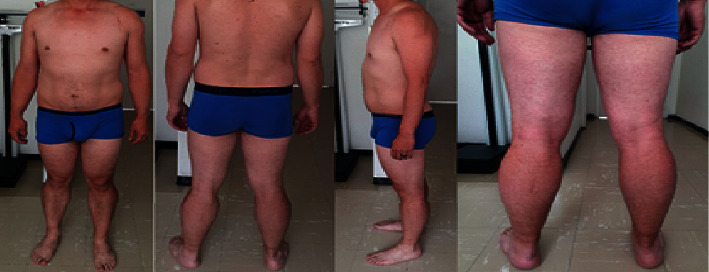Hyperkalemic Periodic Paralysis: Case Report with a SCNA4 Gene Mutation and Literature Review.
Case Reports in Genetics
Pub Date : 2020-10-16
eCollection Date: 2020-01-01
DOI:10.1155/2020/8843410
引用次数: 1
Abstract
Hyperkalemic periodic paralysis is a rare musculoskeletal disorder characterized by episodic muscle weakness associated with hyperkalemia. It is a channelopathy associated with point mutations in the SCNA4 gene, with an autosomal dominant pattern of inheritance. We report the case of a 39-year-old patient with a picture with onset at six years of age, consisting of episodes of weakness caused by physical activity and intercurrent infectious processes, in whom a point mutation was found in the SCNA4 gene, not previously reported in the literature.

高钾血症性周期性麻痹:SCNA4基因突变1例报告及文献复习。
高钾血症性周期性麻痹是一种罕见的肌肉骨骼疾病,其特征是与高钾血症相关的间歇性肌肉无力。这是一种与SCNA4基因点突变相关的通道病,具有常染色体显性遗传模式。我们报告了一名39岁的患者,其6岁时发病,包括由体育活动和交叉感染过程引起的虚弱发作,其中SCNA4基因出现点突变,以前没有文献报道。
本文章由计算机程序翻译,如有差异,请以英文原文为准。
求助全文
约1分钟内获得全文
求助全文

 求助内容:
求助内容: 应助结果提醒方式:
应助结果提醒方式:


